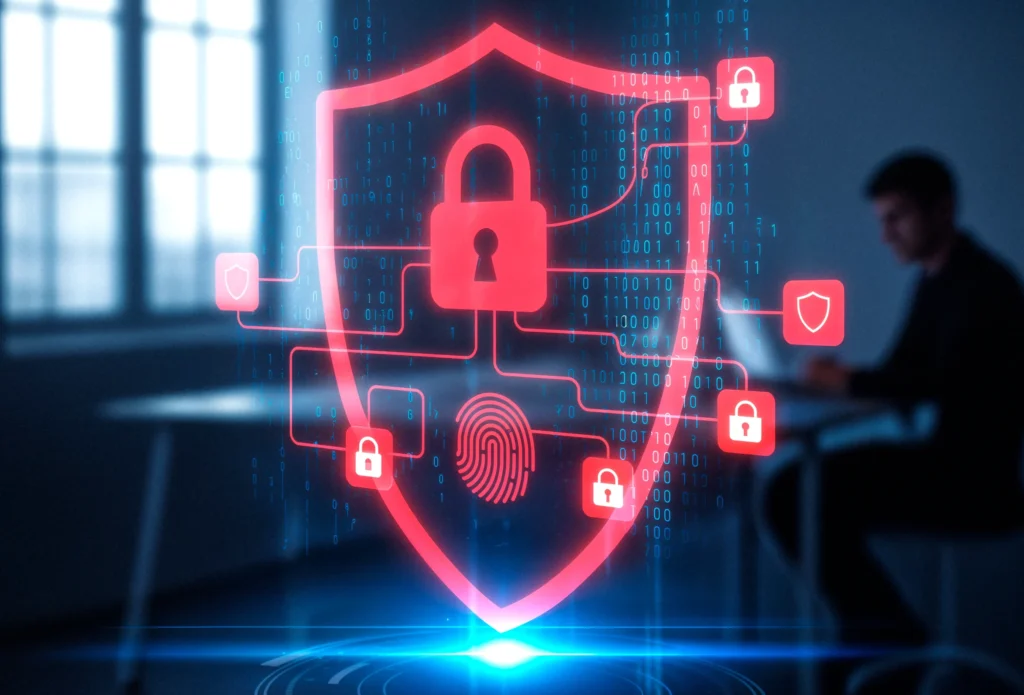Cybersecurity in 2025 When Being Online Is Like Breathing
Cybersecurity in 2025 When Being Online Is Like Breathing By Khadija Haider By 2025, the internet has ceased to be a tool we actively use; it has become the very air we breathe. Every aspect of modern life from banking and business to friendships, health, and even personal identity flows through invisible digital networks. Being online is now as natural and unavoidable as breathing. Yet, this dependence brings a pressing challenge: how can individuals, businesses, and nations stay safe in a world where the digital and physical are inseparable? Everyday Threats in a Hyperconnected World For the average individual, cyber risk has never been more immediate. Security is no longer about avoiding suspicious emails or pop-up ads; threats have become intelligent, personal, and alarmingly realistic. Artificial intelligence can replicate the voice of a loved one to request money. Messaging platforms are plagued by fraudulent accounts impersonating banks or delivery services. Crypto and investment scams promise impossible returns, drawing victims into sophisticated traps. Even everyday applications, from fitness trackers to food delivery apps have become gateways for personal data leaks. In this environment, each individual must assume the role of their own cybersecurity officer. Awareness and vigilance are no longer optional but essential elements of daily life. The New Discipline of Digital Hygiene Fortunately, safety does not require deep technical expertise. What it does demand is discipline the cultivation of what experts increasingly call “digital hygiene.” Strong, unique passwords safeguarded by management tools, multi-factor authentication across critical accounts, encrypted communication channels, and the habit of keeping software updated are no longer best practices; they are survival skills. Equally important is skepticism. In a world where scams appear flawless and urgent messages feel authentic, a moment of pause can be the most powerful shield. In markets such as the UAE, where digital adoption is advanced, government services and banks have introduced verification badges to protect citizens. Recognizing and respecting these signals is now an essential part of digital literacy. Cybersecurity at the National and Global Scale While individuals contend with daily scams, nations face the broader challenge of securing entire digital ecosystems. The United Arab Emirates has emerged as a leader in this field, rethinking what safety means in a borderless digital era. Artificial intelligence systems, designed to detect threats before they strike, are being deployed alongside quantum encryption, a technology many consider virtually unbreakable. In smart cities such as Dubai and Abu Dhabi, where traffic control, healthcare, and utilities depend on interconnected data systems, cyber resilience is as vital as electricity. Biometric ecosystems, ranging from facial recognition to voice authentication, are rapidly replacing traditional logins, offering both security and efficiency. The UAE’s National Cybersecurity Strategy, combined with international platforms such as GISEC Global in Dubai, demonstrates a clear commitment to leadership in this space. The numbers underscore the urgency: in 2024 alone, the country blocked more than 70 million phishing attempts. When Security Becomes a Symbol of Status Cybersecurity in 2025 is not only about protection; it is also about prestige. For executives and high-net-worth individuals, digital privacy has become a status symbol, an investment in both safety and exclusivity. Ultra-secure smartphones designed with blockchain capabilities, bespoke private networks engineered to be untraceable, and premium encrypted communication platforms are increasingly positioned as luxury assets. In much the same way that a Swiss watch once signaled refinement and foresight, sophisticated layers of digital defense now communicate influence and authority. In the Middle East, where innovation and exclusivity carry significant cultural weight, this convergence of security and luxury has become a defining trend. Breathing Safely in a Digital Age The digital future cannot be avoided; it must be navigated. For individuals, this means practicing digital mindfulness pausing before sharing information, questioning messages that seem urgent or unusual, and treating online interactions with the same caution as face-to-face exchanges. For businesses, it requires investment not just in firewalls and systems but in people: training employees, building awareness, and creating cultures of responsibility. And for governments, the task is to combine regulation with innovation, ensuring that education and collaboration keep pace with the rapidly shifting threat landscape. In 2025, the defining question is no longer whether we are online. That is a given. The real question is: are we safe while we breathe online?

